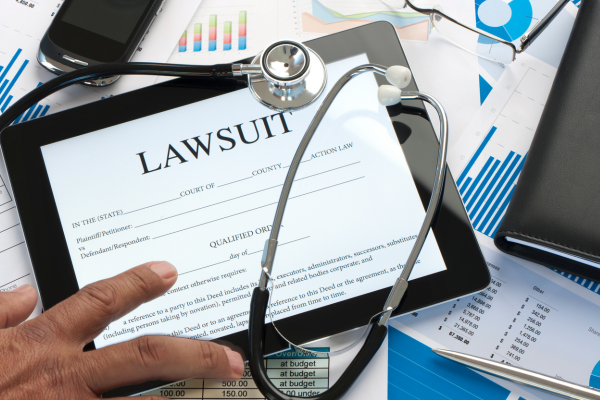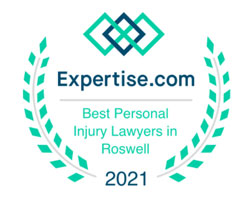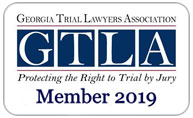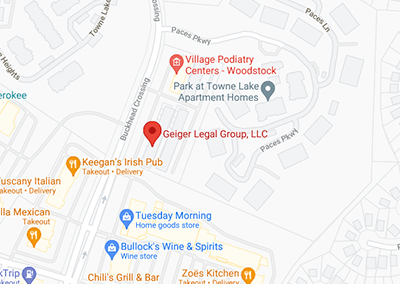Common Causes of Wrongful Death
Many forms of negligence and criminal activity can cause wrongful death. Some of the most common causes of wrongful death include:
- Car accidents
- Truck accidents
- Medical malpractice
- Workplace accidents
- Dangerous premises
- Criminal acts
What Wrongful Death Compensation Can Cover
In Georgia, a wrongful death lawsuit can provide compensation to the deceased’s loved ones and estate. There are two categories of compensation for wrongful death that surviving family members and loved ones can seek.
The first provides compensation for “the full value of the life of the decedent.” These losses are felt by the surviving loved ones, and the lawsuit is brought on their behalf. This category includes both economic and non-economic damages, including:
- Lost companionship, care, advice, and counsel
- Lost wages, services, and benefits, including the future amount of potential wages the decedent could have earned had they survived.
The second category seeks to compensate the decedent’s estate for losses and expenses related to the loved one’s death. Damages include:
- Funeral and burial expenses
- Medical costs, if the decedent was receiving medical care before their passing
- Other expenses connected to the accident, injury, or illness that caused the death
A Georgia wrongful death lawyer can help you understand which of these damages you might be entitled to, approximately how much, and how to navigate the process of filing a wrongful death claim.
A Survival Action Can Provide Further Compensation
The loved one’s estate may also have the option to pursue a survival action in addition to a wrongful death claim. While wrongful death suits seek to compensate the surviving family members for their emotional pain and financial difficulties following the death, a survival action acts like a personal injury claim on behalf of the decedent if they had survived the injury or illness.
A survival action seeks compensation for the pain and suffering they experienced prior to their passing. For example, if the decedent suffered a workplace injury and was hospitalized for a week prior to their death, the survival action seeks compensation for their pain, suffering, and medical costs during that week.
The Process of Filing a Wrongful Death Claim
While each wrongful death case is different, they follow the same overall process.
- Determine eligibility. The first step towards filing a wrongful death claim is to make sure you have grounds to file a case. In Georgia, eligibility to file a wrongful death suit begins with the deceased’s spouse, followed by their children, then their parents, and then the administrator or executor of the estate. Siblings and grandparents are not eligible under Georgia law unless they are the executor.
- Determine negligence. Did someone’s wrongdoing, carelessness, or intentional violence cause your loved one’s death? You may have grounds to file a wrongful death claim. If you aren’t sure, an attorney can help you determine if you might have a case. You must demonstrate four elements to determine negligence: The defendant owed the deceased a duty of care, the defendant breached this duty, this breach of duty caused the death, and this death resulted in damages or losses.
- Consult an attorney. As soon as you can, contact a wrongful death attorney near you. They can answer your questions about how much you might expect to receive in a wrongful death settlement or verdict and help determine if you have a valid case.
- Build the case. If your attorney decides to pursue your wrongful death case, they will begin gathering evidence. This includes collecting your own records about the case, as well as evidence that turns up in their own investigation. They will conduct interviews with witnesses and relevant parties.
- Filing the claim. Once your attorney has determined negligence and built a solid case, they will file a Georgia wrongful death claim. This includes issuing a letter of demand to the party or parties responsible for the death. In many cases, this goes to an insurance company. It will outline the specifics of your case, including the damages you are seeking.
- Negotiations. Your attorney and the party accused of causing the wrongful death will enter into negotiations about how much you are owed. If the parties can agree on terms, they will finalize a settlement amount and terms for payment. This will conclude the case. If the parties cannot agree on a settlement, your attorney will file a wrongful death lawsuit, and the case will proceed to trial.
- Trial preparations. When settlement negotiations break down, your attorney will prepare your case for trial. This includes a discovery phase, in which evidence is shared between parties. Your attorney may hire accident reconstructionists, solicit testimony from medical professionals for their expert perspectives, conduct forensic analysis, and prepare demonstrations to show a jury exactly what happened. They will also gather witnesses who can testify in court.
- Trial. Both sides can agree to a settlement at any point up until the trial begins. If not, the trial will play out. Both plaintiff and defense sides will present their sides of the case, and a judge or jury will decide the outcome.
Throughout the process, your Georgia wrongful death attorney will keep you apprised of each step and answer all your questions about what will happen next.
Challenges and Considerations in Wrongful Death Cases
Filing a wrongful death suit is not without its challenges. Thankfully, your attorney will know how to anticipate and respond to these.
The most common challenge to a wrongful death claim is a denial of responsibility. The defense will attempt to deny or downplay their role in the death. This is why it’s essential to avoid making social media posts or speaking publicly about the case, as these could be used against you.
Another challenge involves collecting evidence and gathering witnesses to prove negligence. While this varies from case to case, some involve a greater difficulty in proving that the negligent party was indeed negligent. The best way to combat this is to contact an attorney immediately. Incriminating evidence has a habit of disappearing fast. The sooner an attorney can get started on your case, the better their chances are of securing evidence and locking down eyewitness testimony while their memory is still fresh.
Another reason to contact an attorney as soon as possible is to meet the deadline to file a claim. In Georgia, the statute of limitations on wrongful death claims is two years. That means that you have two years from the date of the deceased’s death to file a suit. Compiling a solid case takes a lot of time and work, so acting quickly is in your best interest.
Why You Need an Experienced Wrongful Death Attorney
When choosing the best wrongful death attorney to handle your case, we know you have many options. Choosing an attorney with specific experience handling wrongful death cases and obtaining results is essential. If you choose an attorney who focuses on unrelated practice areas, you’re taking a big risk.
An attorney with first-hand experience handling wrongful death claims, including obtaining successful trial results, can be your trustworthy guide as you seek justice for your losses. You’ll want an attorney you feel comfortable speaking to and who you trust can be responsive, transparent, and in constant communication with you about where your case stands. You want an attorney who knows the local legal system, understands the law, and has experience getting solid results.
Contact Our North Georgia Wrongful Death Attorneys for Help
Losing a loved one due to the negligent and criminal act of someone else creates unbearable anger, stress, sadness, and confusion. The attorneys at Geiger Legal Group, LLC have walked this road before, and we would be honored to guide you through this period of uncertainty.
To learn more about how we can help you, contact us today to schedule a free consultation. We can discuss the specifics of your case and give you advice on what to do next. In the meantime, please review our Testimonials to learn more about how we’ve helped people throughout Georgia recover from traumatic accidents, injuries, and tragedies. There’s no charge to meet with us, and you owe no fees unless we obtain results for you.
















